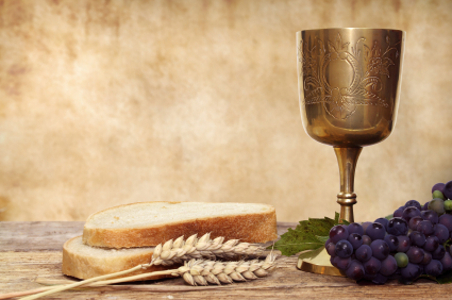Beware of limiting the good of fasting to mere abstinence from meats. Real fasting is alienation from evil. ‘Loose the bands of wickedness.’ For give your neighbour the mischief he has done you. Forgive him his trespasses against you. Do not ‘fast for strife and debate.’ You do not devour flesh, but you devour your brother. You abstain from wine, but you indulge in outrages. You wait for evening before you take food, but you spend the day in the law courts. Woe to those who are ‘drunken, but not with wine.’ Anger is the intoxication of the soul, and makes it out of its wits like wine.
St. Basil, in his homilies on the Holy Spirit
Bodily purity is primarily attained through fasting, and through bodily purity comes spiritual purity. Abstinence from food, according to the words of that son of grace, St. Ephraim the Syrian, means: ‘Not to desire or demand much food, either sweet or costly; to eat nothing outside the stated times; not to give oneself over to gratification of the appetite; not to stir up hunger in oneself by looking at good food; and not to desire one or another sort of food.
The Prologue from Ochrid – by St. Nikolai Velimirovich (Volume 4, p 338):
Fasting is an exceptional virtue; it represses bodily impulses and gives strength to the soul to fight against the poisoning of the heart through the senses, and provides it with a remedy against any past poisoning. Fasting causes the mind to be cleansed constantly. It whithers up every evil thought and brings healthy, godly thoughts – holy thoughts that enlighten the mind and kindle it with more zeal and spiritual fervour.
Elder Ephraim of Philotheou Mount Athos, “Counsels from the Holy Mountain”


